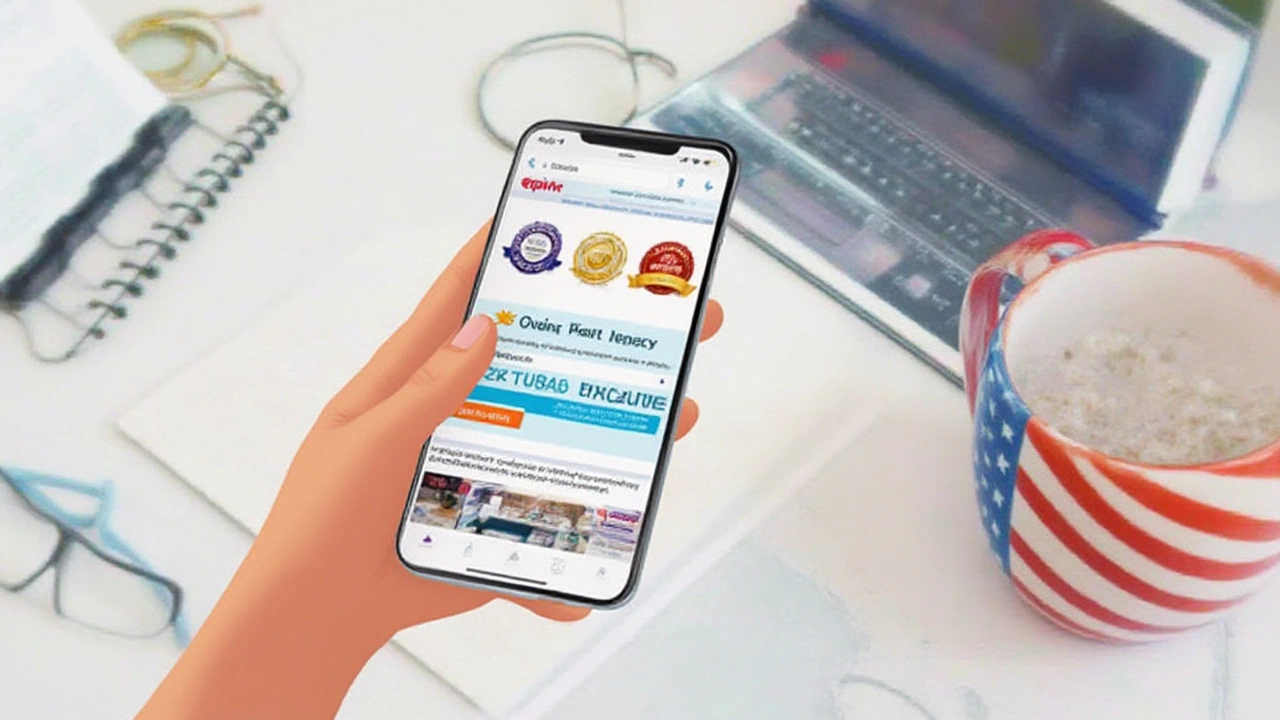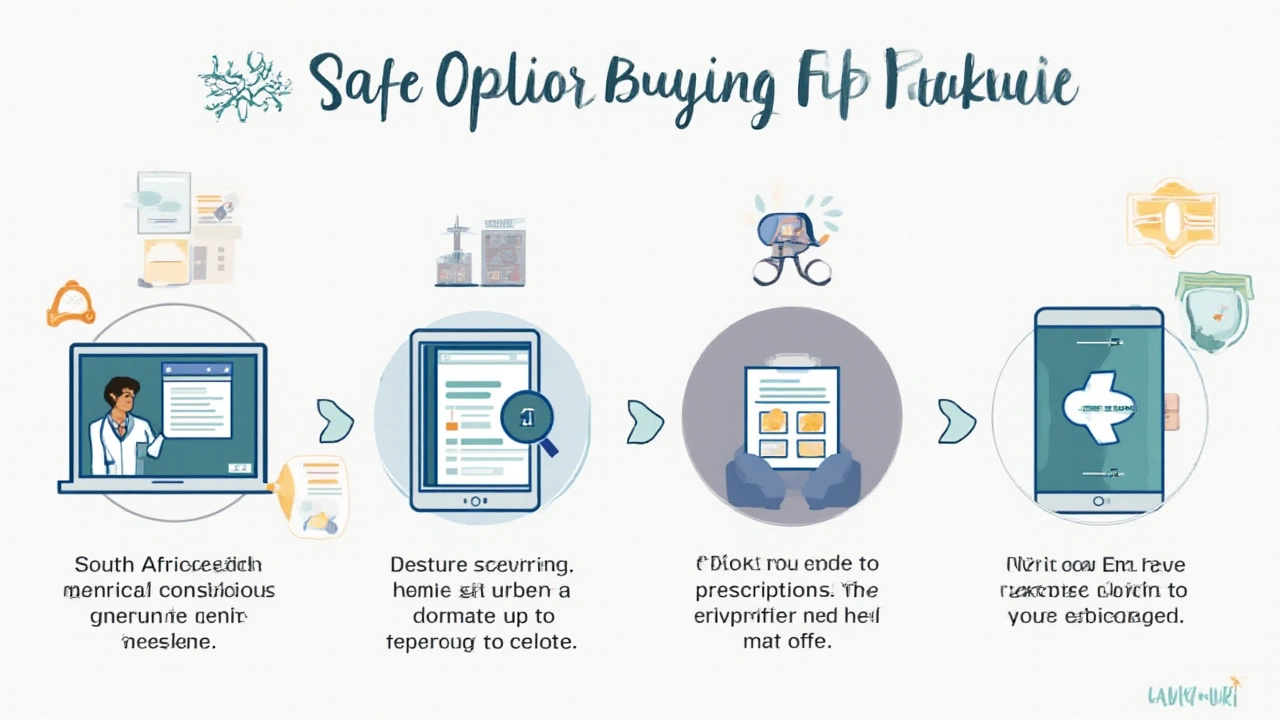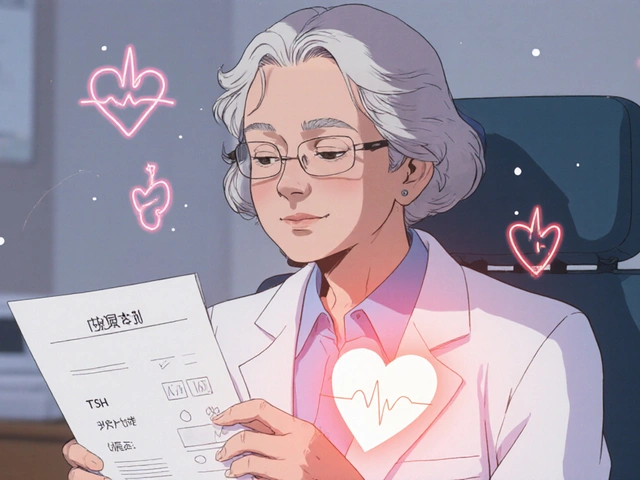If you need Epivir and you’re thinking about buying it online, you’re definitely not alone. Getting your hands on prescription meds on the internet is easier than ever these days. But, easy doesn’t always mean safe or legal. The whole process can feel like a wild west adventure. Fake pharmacies, dodgy payment systems, and flaky delivery can all leave you wondering if risking your health is worth the ‘convenience’. But people do it. Why? Because sometimes, your local pharmacy doesn’t have what you need, or you want a more affordable option, or maybe privacy is the big deal for you. Whatever your reason, knowing exactly how to buy Epivir online makes all the difference—in price, safety, and your peace of mind.
Understanding Epivir: What It Is, How It Works, and Why It Matters
Before you even open that browser tab, let’s talk a bit about what Epivir is and why it’s crucial to approach it with the right info in your back pocket. Epivir, known generically as lamivudine, is an antiretroviral medication. In South Africa, Epivir pops up everywhere in the management of both HIV and hepatitis B. It works by blocking an enzyme—reverse transcriptase—that HIV needs to replicate in the body. Blocking that enzyme means the virus can’t multiply as fast. For HIV, Epivir usually forms part of a bigger game plan; doctors prescribe it as part of a combination therapy, not as a solo act. And yes, combo therapy works: It reduces viral loads so well that millions of people can lead full lives while staying healthy and managing their condition.
Epivir isn’t a casual pill. There’s science baked into each dose. A 2023 review from the World Health Organization estimated nearly seven out of ten South Africans living with HIV are on a regimen that includes lamivudine. It’s tried, tested, and recommended by local and international guidelines. But here’s the kicker: taking Epivir without proper supervision can cause the virus to become resistant. That short-cutting dangerous. This means getting it from a trustworthy source is crucial. You want to know the tablets you’re popping each day are the real thing, and that you’re getting the exact dose you need.
It’s not just about pharmacy quality, either. With something as vital as antiretrovirals, even a small break in your supply can mess with your treatment and your health. An honest mistake in medication, an unexpected customs delay, or a batch of counterfeit pills online—the risks are real, and the consequences can be serious. If you’re buying online, you need to have all your wits about you.

How to Buy Epivir Online in South Africa: Step-by-Step Guide and Smart Tips
First off, know that you need a prescription. No legitimate online pharmacy is going to hand out Epivir or any antiretroviral meds without one. If you come across a site that says otherwise, treat it as a red flag. According to the South African Pharmacy Council, it’s illegal for any online pharmacy to dispense prescription medicines without seeing your verified prescription. Your first step? Have a current prescription from your doctor. If you need a fresh script, most local GPs, clinics, or HIV care centers provide them. If you see a site offering “medical consultations” online, check if they’re registered with the Health Professions Council of South Africa (HPCSA)—it’s easy to look up, and you’ll protect yourself from scams.
Start with official, accredited online pharmacies. South Africa does have a few online pharmacies registered with the South African Pharmacy Council (SAPC). They carry SAPC numbers—if in doubt, always ask for proof before you proceed. Look for sites with physical addresses in South Africa, transparent contact information, and good customer reviews. If an online pharmacy’s website address ends in ‘.pharmacy’, it’s usually a good sign: the National Association of Boards of Pharmacy (NABP) only gives that domain to vetted businesses.
Here’s the checklist for a trustworthy site:
- They ask for your prescription.
- They display their SAPC registration number.
- Clear, professional website and real-world contact info.
- Customer service that responds quickly and helpfully.
If a site ticks all these boxes, you’re probably in safe hands. No one wants to fall for a scam, especially when it’s your health on the line. For payment, stick to trusted options: well-known credit cards, secure bank transfers, or reputable payment platforms like PayFast or PayPal. Avoid wire transfers or requests for cryptocurrency—those are common with dodgy dealers who vanish overnight.
Price is always a big question. Yes, genuine Epivir can cost less online than from some brick-and-mortar pharmacies. The South African Department of Health bulk-purchases ARVs, so most private buyers won’t see gigantic savings, but you’ll sometimes find slight deals. According to 2024 data, a one-month supply (30 x 150mg tablets) from local online pharmacies ranges from R350 to R600. If you see a price that’s drastically lower—say, R80 or less—pause. Super-low prices are often the bait scammers use, and the pills could be counterfeit, expired, or something else altogether. Always check the manufacturer and expiry dates before you use the meds at home.
Be smart about delivery. Most big-name pharmacies offer door-to-door courier services, which helps if you’re looking for privacy. Expect to pay around R60–R120 for standard shipping, depending on where you live. Delivery times vary: urban areas in South Africa usually see 1–3 working days, but rural places might have to wait up to a week. Always plan your refills early so you don’t run out. If you miss a delivery, contact the courier—most of them have customer service hotlines or WhatsApp support for late parcels.
Another practical tip: set a calendar reminder for when you need to reorder. Running out is a real hassle when you depend on daily medication. A 2022 survey by Positive Vibes, an HIV advocacy group in Durban, showed that more than a third of people miss at least one dose per year due to ‘supply slip-ups’, often linked to delivery issues. So getting organized minimizes gaps and keeps your health on track.
For those who care about privacy, online orders are usually packed discreetly. Most come in plain, unmarked boxes—no medicine names are shown on the outside. You don’t have to worry about nosy neighbors or curious family members.
Here’s a handy comparison table with general price and time info for online Epivir orders in South Africa (as of early 2025):
| Supplier | Price (30 x 150mg) | Delivery Time | Shipping Fee | Order Method |
|---|---|---|---|---|
| Clicks Online Pharmacy | R400 | 2–4 days | R70 | Website or app |
| Dis-Chem Direct | R430 | 2–3 days | R75 | Website or app |
| Medirite Plus | R370 | 1–5 days | R60 | Phone/web |
| Trusted Global (Intl.) | R600 | 5–10 days | R120 | Website only |
Those prices may shift with market demand and exchange rates, but expect them to fall into that ballpark. Keep your prescription handy and snap a clear photo or scan—it’s usually all you need for uploading. Most pharmacies keep your prescription securely on file for future refills, which cuts down on paperwork stress next month.

Red Flags, Useful Tips, and How to Protect Yourself When Shopping for Epivir Online
Certain warning signs signal it’s best to steer clear. If the website looks sketchy, ignores your prescription, hides its real address, or gives only a generic ‘contact us’ email, hit exit fast. Friends sometimes share deals they’ve found on WhatsApp or Facebook, but personal advice isn’t always reliable. If in doubt, look up independent reviews or check forums like MyBroadband or Health24—people often share their online pharmacy experiences there.
If you get emails or text messages advertising Epivir with crazy discounts, be cautious. It’s a common scam tactic. No pharmacy will email huge deals out of the blue to people who haven’t even registered with them. And if you’re ever sent a payment link that doesn’t look like the legit pharmacy’s main site, think twice before you click. It’s better to phone the customer service line or use their official chat service instead. Phishing is getting smarter, and scammers hope you’re in a rush.
Reliability matters when it comes to refills. Go with the big-name pharmacies first—if they’re out of stock, try registered independents next. Avoid overseas pharmacies that market directly to South Africans but don’t show an SAPC registration. Meds coming from countries like India or China are not guaranteed to meet SA standards, and customs can seize your package, leaving you in the lurch or facing fines.
Delivery reliability is part of the picture. Always ask if the pharmacy has ‘cold-chain’ options if your climate is extreme—while Epivir doesn’t usually need refrigeration, Durban’s humid summers do funny things to packaging. Always open the box and check for any signs of tampering or damaged blisters. If something feels off, contact the pharmacy and don’t take any pills until you’ve got answers.
If you’re someone who often travels in or out of South Africa, check the pharmacy’s policy on sending meds abroad. Some don’t ship internationally due to strict medication export laws, even if your script is valid. If you’re planning a long trip, talk to your doctor and request extra repeats so you have a supply buffer just in case.
Now, about price hacks: if you have chronic condition coverage through private health insurance, your plan might reimburse you for online purchases—just make sure you submit your receipts promptly and keep the pharmacy invoices. Pharmacies like Clicks and Dis-Chem will give you official receipts and even digital statements that fit insurer requirements. Skipping this step can cost you hundreds every year in missed reimbursements.
Want your meds faster? Order early in the week. Courier services slow down toward the weekend, especially in smaller towns or during public holidays. And always provide the right contact info for delivery: a missed call or wrong address can mean losing days, which is dangerous if you’re running low.
When in doubt—or if you hit any trouble, like lost parcels, suspicious-looking pills, or customer support that goes radio silent—the best move is to contact the SAPC or Health Products Regulatory Authority (SAHPRA) directly. Both have offices in Pretoria but offer online support and are quick to respond if someone is breaking the law or risking people’s health. It’s easier to double-check and prevent a bad situation than regret taking a risk on a dodgy deal.
And just one more thing: tell your doctor every time you switch pharmacies or brands. Not every formulation or batch is exactly the same, and if you experience side effects or notice changes in effectiveness, track them and bring them up at your next checkup. Staying honest with your healthcare team is hands-down your best safety net. And that’s your real protection—online and offline.







John Kang
22 July, 2025 06:13 AMBeen buying Epivir online for two years now and honestly it’s been smooth as long as you stick to the big names like Clicks or Dis-Chem
Never go for anything under R350 no matter how good the deal sounds
My cousin got fake pills last year and ended up in the hospital with a resistant strain
Don’t be that guy
Bob Stewart
23 July, 2025 05:22 AMLegitimate online procurement of antiretroviral medications requires adherence to regulatory frameworks established by the South African Pharmacy Council and Health Products Regulatory Authority
Any vendor failing to verify prescription authenticity or omitting SAPC registration details constitutes a violation of the Medicines and Related Substances Act No 101 of 1965
Pharmacovigilance protocols must be observed to prevent emergence of drug-resistant HIV strains
Consumer vigilance remains the primary defense against counterfeit pharmaceuticals
Simran Mishra
24 July, 2025 14:51 PMI know this might sound dramatic but I almost lost my life because I trusted a WhatsApp group that said they had Epivir for R90 and I took it for three days before my legs started shaking and my vision went blurry and I had to rush to the clinic and my doctor said I was lucky I didn’t develop full-blown resistance and now I cry every time I see a deal that seems too good to be true and I don’t even care if I pay R600 I just want to know my pills are real and my baby’s daddy is still here and I think about how many others aren’t so lucky and why do people even do this to each other like do they not have hearts or do they just not care
Also I’ve been using Medirite Plus and their delivery guy always calls me before he drops it off and that’s the only reason I keep going back
ka modesto
26 July, 2025 13:55 PMBig tip: if you’re ordering from outside SA like India or Thailand, make sure the pharmacy is registered with NABP and has that .pharmacy domain
Also check if they offer tracking with SMS updates - I had a package get stuck in customs for 3 weeks once and I was panicking
But the pharmacy actually called me with a solution and sent a replacement fast
Real ones care
And yeah - always keep your prescription handy, even if they say they have it on file
Trust but verify
Holly Lowe
28 July, 2025 11:55 AMLet me tell you - this isn’t just about pills, it’s about dignity
Getting your meds delivered in a plain box with no labels? That’s freedom
Not having to explain to your auntie why you’re taking ‘that medicine’? That’s peace
And yeah, paying R400 instead of R600 at the corner pharmacy? That’s power
Don’t let fear or shame rob you of the right to live well
Do it smart, do it safe, do it loud - you deserve this